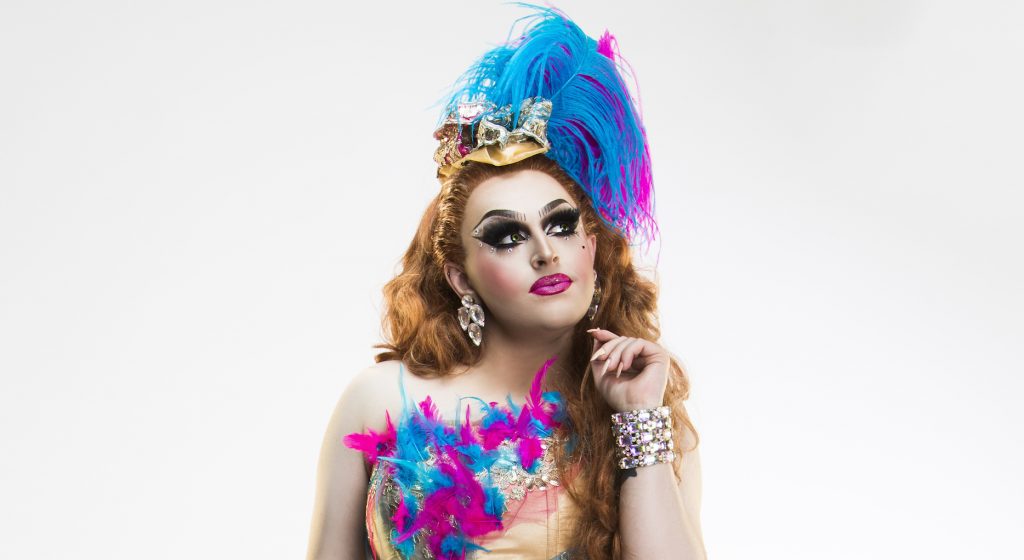“Drag Is Not About Genitals”: Australian Queens Respond To The RuPaul Controversy
"Is he really the authority on drag in our contemporary culture?"

Over Mardi Gras weekend, RuPaul — the most famous and successful drag queen in history — told The Guardian he’d “probably not” allow a trans queen who has undergone gender corrective surgeries to compete in Ru Paul’s Drag Race.
“You can identify as a woman and say you’re transitioning, but it changes once you start changing your body,” he said. “It takes on a different thing; it changes the whole concept of what we’re doing. We’ve had some girls who’ve had some injections in the face and maybe a little bit in the butt here and there, but they haven’t transitioned.”
Many found his comments wildly offensive — after all, shouldn’t drag be one of the safest spaces of all for trans people? And shouldn’t a guy who’s literally built his career on disrupting our ideas about gender try a little bit harder to champion inclusivity? We spoke to five Australian drag artists for their take on the RuPaul controversy.
Hannah Conda – 26, Gay
Why do you identify as a drag queen/artist?
I am a gay man who dons the wig, lashes and heels and performs on stage. I have played with different gender roles while performing but every time I exaggerate the facets of that character to blur the lines between reality and fantasy. I am a drag queen because I am a performing piece of gender-bending art.
Do you believe RuPaul’s comments were damaging to the drag and LGBTQI communities?
Yes and no. Drag performers come in all different shapes, sizes, colours, genders and sexualities, for the most part each one of us is accepting of all the facets of drag. However with figures like RuPaul making these comments it shows the wider community that maybe there isn’t acceptance within our own, making it hard for people to support us when this inequality is highlighted with broad and exclusive statements.
Drag is and always will be an evolving art form. Trans and female drag performers have been in this world for years and not allowing someone who doesn’t fit the generic idea of a drag queen to compete in a show that they have every right to be involved in is ridiculous.
How do you define “drag”?
Drag is a living, breathing piece of art. It pokes fun at social norms. Drag has no gender, no age and no one colour. It challenges ideals and stereotypes. It is only limited by your own imagination.
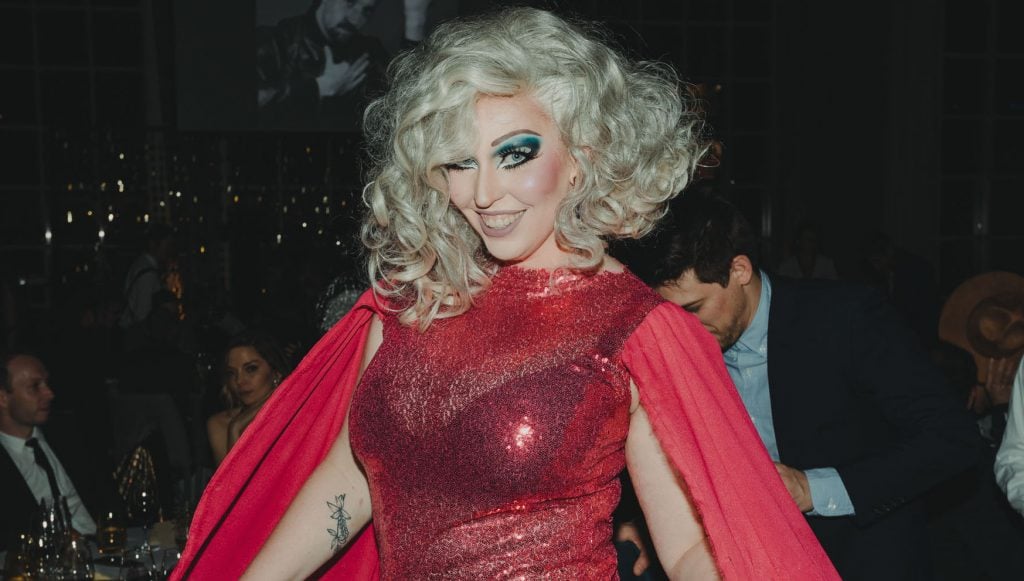
Penta Gramme – 32, Bisexual, Queer
Why do you identify as a drag queen/artist?
I struggle with labels like bio queen, faux queen and even drag queen, preferring to identify as part of the over-arching drag scene. I push the boundaries of gender through costume, hair and makeup and I produce drag shows to give back to the community. Sometimes people assume that I’m a man dressed as a woman and I’m absolutely fine with that. It means I’m truly blurring the boundaries of gender and there is a real power in that.
Do you believe RuPaul’s comments were damaging to the drag and LGBTQI communities?
RuPaul obviously has the power and the right to invite whoever they like onto their show and has been an absolute trailblazer for queer and drag rights. These comments however, are damaging because they equate people’s bodies with their identities. This implies that trans women who have not undergone surgery are not really women yet.
Ru mentions that bio-queens have the Miss Universe pageant and therefore do not need to enter Drag Race. I’d like to see some of my drag sisters walk as Miss Australia in hip pads, breast plates, two stacked wigs and a hard contour and see how they place!
How do you define “drag”?
Drag is an art form and shouldn’t belong to any one group. Femininity certainly shouldn’t belong to any one group. We’re so lucky to have inclusive nights in Melbourne and Sydney that allows anyone to take the stage in their version of drag. Playing with gender gives so many people a place in the world.
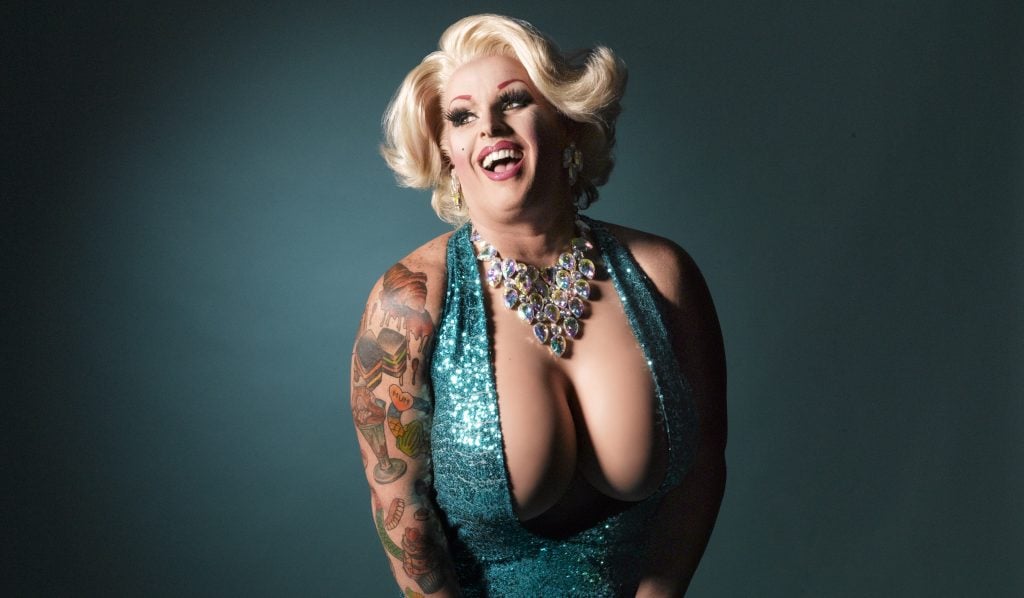
Maxi Shields – 44, Gay/Identifies On The Trans Spectrum
Why do you identify as a drag queen/artist?
There has always been the call of the stage with me. Even as a small child I would dress up and do fashion parades around the house. The glamorous part of me has always been there. I’m absolutely blessed that I can do what I love every day of the week as an out and proud drag queen.
Do you believe RuPaul’s comments were damaging to the drag and LGBTQI communities?
Yes, but they have opened a discussion and rallied support for our trans sisters and brothers. The first ever performer I saw was the fabulous Christie McNicol — a trans drag artist. This beautiful creature had us all in her hand. To say that our trans sisters are not a part of the drag community is just ridiculous. We need to remember our history and the fact that we did and will always stand side by side.
How do you define “drag”?
I don’t think you can define “drag”, I believe drag shouldn’t have rules. Anything is possible, especially with a little touch of glitter.
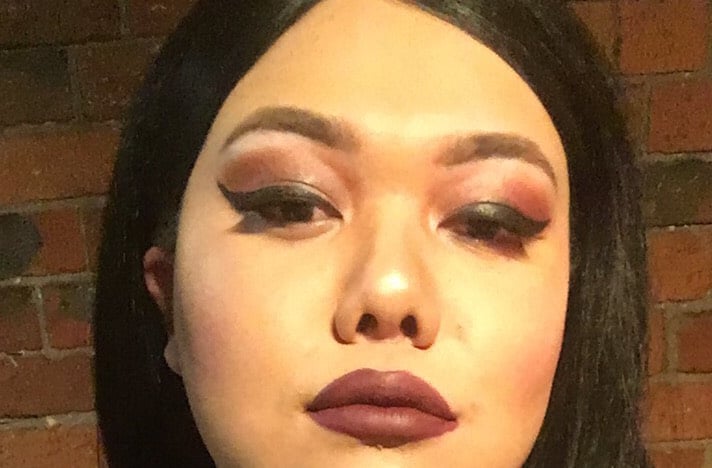
Maya Soul – 21, Trans
Why do you identify as a drag queen/artist?
Because drag is what I do. I don’t fit the stereotype of being a Showgirl and I don’t feel that that term suits me either. I am a drag queen whether this community approves of it or not.
Do you believe RuPaul’s comments were damaging to the drag and LGBTQI communities?
The comments made by Ru Paul bring a light to the older generation in this community. I am disappointed by the comments he made, but also appreciate them. It shows that this community still has a lot to learn about our history. This community was built on the backs of trans women of colour and they continuously refuse to defend, protect and lift up trans women of colour.
How do you define “drag”?
Drag is an art form and not about genitals. Drag is about creating an illusion. Drag has changed so much over the years and people need to realise that.
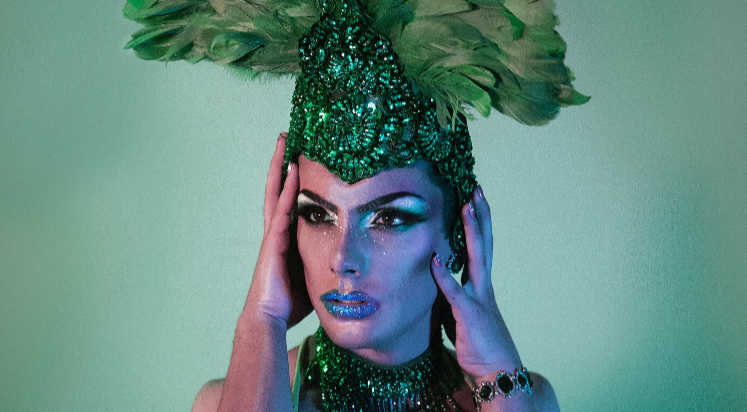
Etcetera Etcetera – 20, Gay And Gender-Queer
Why do you identify as a drag queen/artist?
I find it an important to protect my queer family, interpret changes in artistic culture and experiment in nuanced ways that traditional performance can’t explore.
Do you believe RuPaul’s comments were damaging to the drag and LGBTQI communities?
RuPaul’s comments were unnecessary. Is he really the authority on drag in our contemporary culture? I consider him an icon, and I don’t think that will ever change, but not a progressively queer icon. He doesn’t inspire me, I can’t deny he inspires other people however, or his power to control how we view drag.
As a gender-queer individual it confuses me how my drag is valid but the drag of my transgender or female friends is not. Our culture is built upon our trans and non-binary mothers and fathers, to claim cis men have the stewardship of drag is ignorant, small-minded and selfish.
How do you define “drag”?
Drag is queer performative activism. It either inspires people or makes them uncomfortable, it forces people into action. In drag I activate spaces, change minds and create energy. Queer and gender diverse people in spaces performing their identity will always be drag to me.
—
Patrick Campbell is a writer based in Sydney whose main interests include queer culture, music, and udon noodles.
—
Images provided



